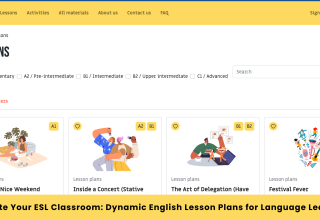There is grammar, vocabulary, syntax and so much more than you have to learn and it can get overwhelming sometimes. But when you follow some tactics, you will see that language learning will not only become easy, but you will also have a fun time learning it. Here we have some simple tips and tricks for you so you can easily speak any language fluently.
1. Learn The Basic Words
All the languages have some basic words. These are the words that comprise most of the conversation, and when you learn them, you can begin communicating in some way. Instead of overwhelming yourself with a lot of work, try to learn the most commonly used words in your target language list (the language you are learning), such as vowels and nouns. For example, if you are trying to learn Portuguese, learn how to say hi or thank you in Portuguese. At least with this approach, you will start to get somewhere in the first month. After that, you can change your focus, and step by step, move towards the complicated tasks.
2. Watch Movies With Subtitles
One easy way to be fluent in a language is to start listening to shows and watching films in that language! This step usually comes later on when you can understand and speak some of the languages. Watching films alone will not give you any benefit unless you watch it with subtitles. You will notice that even when you watch a film in your native language with subtitles, you will correct the mistakes you unconsciously make. The same goes for an unfamiliar language. When you are watching the film, write the words that you do not understand and then search its meaning. After that, watch the film again, but this time, without the subtitles. This way you will not only learn new vocabulary words, but your pronunciation of these words will also get better.
3. Read Local Literature
Every country has its own literature that is in its native language. You cannot find a more authentic version of the language than its own literature. It is important that you explore the literature written in the target language, and it would be even better if you read it aloud. There are different online literature tests that you can try if you want. Poetry is more effective than prose because it will teach you about rhythm. The poetic expression may be a lot more difficult to comprehend, so read that only when you need to achieve an extremely higher level on fluency.
4. Talk To Native Speakers
You can read all the literature and watch all the movies of the target language, but you can never participate in proper communication unless you give it a try. Speaking to native speakers is an effective way to help you become fluent. It will give you a sense of the words and where they are used, and you will learn how their pronunciation. If there is no native speaker around you, try doing a semester abroad in the country where you can openly practice the language. You can never become fluent if you do not practice that language.
5. Listen To Local Music
Just like watching films and reading literature, listening to the songs in the target language is beneficial. The words tend to flow naturally when you sing, and it is yet another way to learn about the correct pronunciation. Listening to music is also fun, and you won’t be bored. Try to choose the music with more lyrics so you can work on your fluency. When you are listening to the song, find the lyrics online and sing along. These days, finding lyrics and their meaning on the internet is not very difficult. Songs will also, in a way, connect you to the culture and the people.
6. Find A Fellow Learner
Even when you are studying in school or college, group studies are encouraged because they elevate your chances of learning more. The same applies to you learning a language, where you should find a partner who is also learning it. It is a fantastic way to keep track of your progress and performance. Practice with among yourselves and talk in the target language so you can correct each other when needed. It will also produce motivation and excitement.
7. Think
You cannot become fluent in a language unless you start thinking in it too. If you are mentally translating each and every word, then you still have a lot of work to do. Thinking hundred percent in the target language will be difficult, but it will help you move forward.
Follow these simple tactics, and you will become fluent in the target language in a matter of months! Good Luck!
About the Author:
Lara Smith has worked for Wall Street English for 20 years. After studying at Stanford University and subsequently doing a CELTA course, she began her career in teaching. She is obsessed with languages and currently writes blogs at https://www.mimicmethod.com/.












